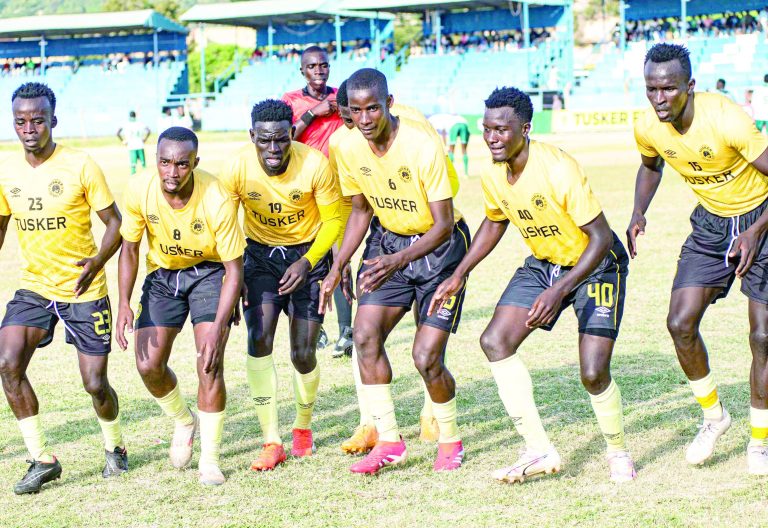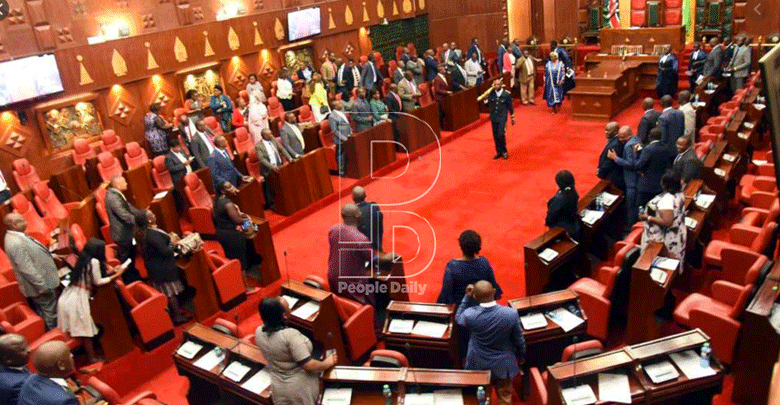Radical plan to cut assemblies’ BBI debate time
By Mercy Mwai, February 18, 2021County Assemblies will now have 30 days to pass or reject the Building Bridges Initiative (BBI) Amendment Bill, if MPs pass a proposed law.
The move is aimed at fast-tracking the passage of the Bill, currently before the 47 county assemblies to pave the way for the proposed referendum.
A joint meeting of the Constitutional Implementation Oversight Committee (CIOC) chaired by Ndaragwa MP Jeremiah Kioni and that of Justice and Legal Affairs (JLAC), chaired by Kangema MP Muturi Kigano, said there was need to reduce the period from the current three months (90 days) within which county assemblies, ought to debate and pass or reject the Bill.
The move came as Kajiado County Assembly became the latest to pass the BBI bill. During a session held at the county assembly yesterday, MCAs unanimously endorsed the Bill through acclamation, becoming the seventh assembly to pass the document after Siaya, Kisumu, Homa Bay, Busia, Trans Nzoia and West Pokot counties.
Baringo is the only county assembly that has rejected the Bill so far. Several assemblies, especially those in the strongholds of Deputy President William Ruto, have been dragging their feet in submitting the Bill for debate, saying it was not a priority.
They include Uasin Gishu, Nandi, Bomet and Kericho, which have argued that they have 90 days to consider it, once tabled. Yesterday, the Nairobi County Assembly edged closer to debating the document after subjecting it to a day-long public participation exercise at Charter Hall, Nairobi.
Two more county assemblies, Nyamira and Marsabit, kicked off the public participation exercise this week, ahead of its debate early next week. In a move seen as aimed at fast-tracking debate and possible approval of the bill ahead of the proposed referendum, the joint committees, in a report tabled at the National Assembly, resolved to delete the entire Clause Five in the Referendum law in this county and so we hope these changes will take effect as soon as possible.
As of now, the assemblies are using the laws we have in place to guide them on the Bill. Apart from the clause touching on the county assembly, the legislators also agreed to adopt a proposal by CIOC, that Parliament should not be involved in the framing of the referendum question.
The JLAC Bill had initially proposed that within seven days of framing the referendum question, IEBC is to refer the question to the relevant House committee for approval.
“It was agreed that Parliament should not be involved in approving the referendum question and, therefore, CIOC proposal be adopted,” reads the joint committee’s report.
Reasonable timelines On the provision to have IEBC make regulations to govern how the referendum is done, the joint committee agreed to delete this amendment as proposed by the two Bills. According to the joint committee, the provision to make regulations vested in IEBC, should be deleted so as not to cause any delay in processing the referendum.
“The amendments seek to reduce unnecessary impediments that may arise out of the need to promulgate regulations for the conduct of a referendum, it further buttresses the application of the already existing Elections Act and the applicable subsidiary legislations under the Elections Act,” adds the repor
t. “The amendment seeks to set reasonable timelines for filing and hearing of referendum petitions at the High Court cognisant of the fact that time is an essential resource,” reads the report.
More Articles

